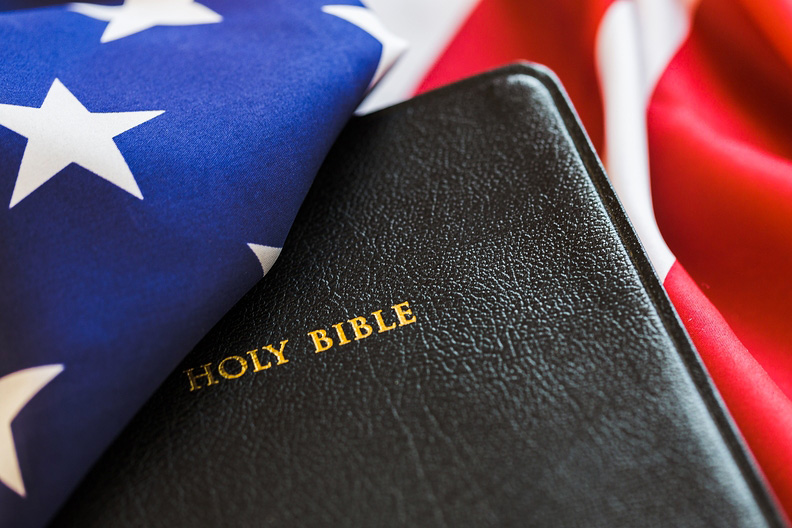Corpus Christi Blog

The Most Cherished of American Freedoms
07-03-2016Weekly ReflectionFr. Chad KingAn excerpt from Our First, Most Cherished Liberty, a statement on Religious Liberty from the United States Council of Catholic Bishops
In 1634, a mix of Catholic and Protestant settlers arrived at St. Clement's Island in Southern Maryland from England aboard the Ark and the Dove. They had come at the invitation of the Catholic Lord Baltimore, who had been granted Maryland by the Protestant King Charles I of England. While Catholics and Protestants were killing each other in Europe, Lord Baltimore imagined Maryland as a society where people of different faiths could live together peacefully. This vision was soon codified in Maryland's 1649 Act Concerning Religion (also called the "Toleration Act"), which was the first law in our nation's history to protect an individual's right to freedom of conscience.
Maryland's early history teaches us that, like any freedom, religious liberty requires constant vigilance and protection, or it will disappear. Maryland's experiment in religious toleration ended within a few decades. The colony was placed under royal control, and the Church of England became the established religion. Discriminatory laws, including the loss of political rights, were enacted against those who refused to conform. Catholic chapels were closed, and Catholics were restricted to practicing their faith in their homes. The Catholic community lived under these conditions until the American Revolution.
By the end of the 18th century, our nation's founders embraced freedom of religion as an essential condition of a free and democratic society. James Madison, often called the Father of the Constitution, described conscience as "the most sacred of all property." He wrote that "the Religion then of every man must be left to the conviction and conscience of every man; and it is the right of every man to exercise it as these may dictate." George Washington wrote that "the establishment of Civil and Religious Liberty was the Motive that induced me to the field of battle." Thomas Jefferson assured the Ursuline Sisters—who had been serving a mostly non-Catholic population by running a hospital, an orphanage, and schools in Louisiana since 1727—that the principles of the Constitution were a "sure guarantee" that their ministry would be free "to govern itself according to its own voluntary rules, without interference from the civil authority." It is therefore fitting that when the Bill of Rights was ratified, religious freedom had the distinction of being the First Amendment. Religious liberty is indeed the first liberty. The First Amendment guarantees that "Congress shall make no law respecting an establishment of religion, or prohibiting the free exercise thereof."
Recently, in a unanimous Supreme Court judgment affirming the importance of that first freedom, the Chief Justice of the United States explained that religious liberty is not just the first freedom for Americans; rather it is the first in the history of democratic freedom, tracing its origins back the first clauses of the Magna Carta of 1215 and beyond. In a telling example, Chief Justice Roberts illustrated our history of religious liberty in light of a Catholic issue decided upon by James Madison, who guided the Bill of Rights through Congress and is known as the architect of the First Amendment:
[In 1806] John Carroll, the first Catholic bishop in the United States, solicited the Executive's opinion on who should be appointed to direct the affairs of the Catholic Church in the territory newly acquired by the Louisiana Purchase. After consulting with President Jefferson, then-Secretary of State James Madison responded that the selection of church "functionaries" was an "entirely ecclesiastical" matter left to the Church's own judgment. The "scrupulous policy of the Constitution in guarding against a political interference with religious affairs," Madison explained, prevented the Government from rendering an opinion on the "selection of ecclesiastical individuals."
That is our American heritage, our most cherished freedom. It is the first freedom because if we are not free in our conscience and our practice of religion, all other freedoms are fragile. If citizens are not free in their own consciences, how can they be free in relation to others, or to the state? If our obligations and duties to God are impeded, or even worse, contradicted by the government, then we can no longer claim to be a land of the free, and a beacon of hope for the world.
BACK TO LIST